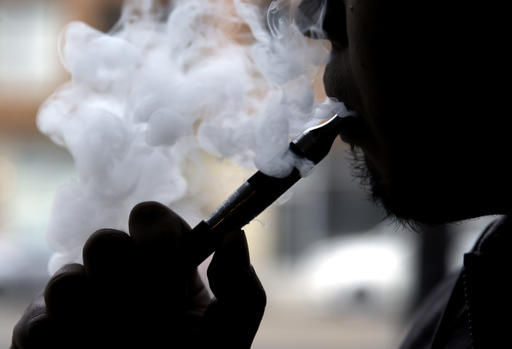An ordinance to raise the legal age to purchase nicotine products from 18 to 21 was delayed Tuesday by both the Tucson City Council and Pima County Board of Supervisors.
Supervisors decided at their morning meeting to return the proposal to the health department after nearly two hours of public discussion. The process used to bring the ordinance to a vote and the proposed penalties for business owners were among the concerns raised during the hearing.
Thirteen of the 17 people who spoke during the public comment portion of the meeting expressed support for the proposal. They urged supervisors to approve the change, which proponents say will be a major step toward keeping tobacco and e-cigarettes out of middle and high schools.
City Councilman Paul Durham told supervisors that the ordinance change is an evidence-based way to fight back against the youth vaping epidemic, with the end goal being to reduce teen usage and keep nicotine products out of schools. Durham, along with fellow city councilman Paul Cunningham, spearheaded the effort to draft the proposal at the city level.
Carlos Estrada, regional operations director for Circle K, said he worried about the penalties for store owners set forth in the proposal. He noted the plan had no penalty for the employee who sells the product nor the minor who makes the purchase.
Under the proposal, business owners whose store is found to have sold tobacco or e-cigarettes to a person under the age of 21 would be issued a written warning after the first violation and required to attend an education course.
The second violation within a 36-month period would result in a $600 fine and a 30-day suspension of the store’s county-issued permit to sell nicotine products. A third violation within three years would prompt a $1,000 fine and six-month suspension on nicotine product sales, which retailers say could put some stores out of business.
Estrada, who oversees 124 stores and roughly 1,350 employees, said that while Circle K is a responsible retailer when it comes to selling tobacco and e-cigarettes, most stores will have 100% employee turnaround in three years. And with nicotine products accounting for 30% of stores’ sales, many stores would suffer after a second violation and likely wouldn’t survive a third.
Estrada also said he was dismayed the process leading to Tuesday’s discussion ended before participants were able to see a draft of the ordinance.
Supervisor Ally Miller said that the proposal was creating another layer of government that the taxpayers will be stuck funding. She voted against the delay and suggested that she’d vote against the proposal when it returns. Supervisor Steve Christy indicated he would do the same.
“Unfortunately, several of the board members brought up frankly unfounded concerns and I’m not sure they will ever pass Tobacco 21,” Durham said during a separate Tucson City Council study session later in the day. Durham suggested that the city take the lead on the issue and move forward with or without the county.
Mayor Jonathan Rothschild said that the city’s proposal was really dependent on the county’s participation, and that it would be preferable to work with the county to pass and pass an ordinance in both jurisdictions.
Rothschild said he wasn’t against revisiting the proposal for the city if it fails at the county, but it would take some work.
“The city going it alone is going to be a tough lift, but I also don’t want to wait for the state,” said Councilman Steve Kozachik. “Let’s lead by example, but let’s give the county an opportunity to be part of the discussion.”
The council voted during its study session to continue the vote on the city ordinance until September. In the meantime, City Manager Michael Ortega is set to work with county officials to try to get the measure passed at a county level.





